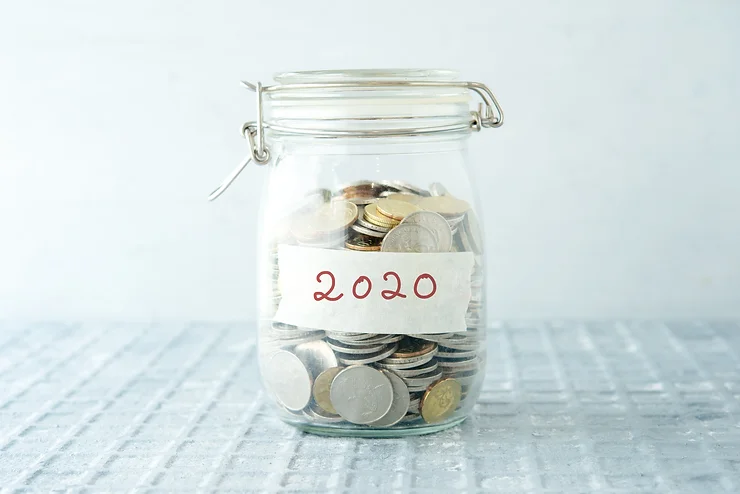Budgeting season is always a hectic time for property managers – but it doesn't have to be. Here are 3 tips that will make the process painless and add value to your community.

Property managers will begin preparing their annual budgets months before they're finalized for 2020.
As the end of the year approaches quickly, property managers nationwide are already making headway on their 2020 budget planning process. If you're a property manager, it's your job to accurately assess what's going well at your property and what needs to be changed in the budget to address challenges your property is facing.
Though budgeting can feel painful at times, always keep in mind that your budgeting choices can directly benefit your residents, your staff, and ownership in the coming year. Sometimes these budgeting choices can be conflicting, but with thoughtful planning, you can make planning work well for all stakeholders.
Here's a few tips to give you some momentum during budgeting season:
1. Evaluate Your Current Income

Before completely diving into your budget process, you'll need to have a clear understanding of your current income. That means more than just documenting the sources of your income and their amounts, it means evaluating the health of those income sources. Determine an income strategy that is both smart and sustainable.
Here's a few questions you should ask yourself to get started:
- Are you offering concessions to drive up your occupancy faster?
- How much rental income per unit are you sacrificing to do this?
- What is the optimal lease rate that you should be charging?
You should project your renewal rates and occupancy goals for the coming year, but don't lose sight of the bigger picture.
If you reduce concessions drastically at renewal, it's likely that your retention rate will suffer. Alternatively, if you continue to offer lower rental rates, you'll drive down the asset value of the property.
These decisions are difficult that you'll have to make - but you shouldn't have to do it alone.
2. Work With Ownership to Define Goals

Collaborate with ownership to determine your goals for the coming year. Your budget should be a resource that helps you achieve long term financial goals for your property. Just make sure you're creating goals that are concrete and achievable.
Find out what goals your owners have in mind, but don't be afraid to speak up.
As a property manager, you have the most first-hand knowledge about what's happening at your community on a daily basis. You're interacting with residents regularly and you work closely with leasing, front desk, and maintenance staff. Use your insight to define revenue and net operating income (NOI) goals for your annual budget.
Christine Bright, Vice President of Operations at RealPage, Inc. believes that multifamily budgeting involves more than just plugging in numbers. In a Property Management Insider article, she stresses the importance of creating a specific plan of action during the budgeting process:
"Not properly defining an asset’s goals can impact the review process. Simply stating a desire to grow income by 5 percent and hold expenses is not goal-setting. Sure, they are measurable numbers, but how are you going to get there?"
Bright suggests that property managers and owners dig deeper to map out exactly what it'll take to achieve their specific income growth goals. She focuses on three major categories she describes as the, "what, how, and how much" it'll take to successfully achieve financial goals.
Setting yearly NOI goals is important, but it's key to continue investing in your property for growth well into the future.
3. Determine New Budget Categories to Increase ROI

If you focus too intently on increasing income right away, you might miss out on the opportunity for return on investment (ROI) through valuable upgrades for your property.
To stay competitive in the rental market, property managers should budget for new appliances, amenities, and services that'll keep current residents happy and appeal to prospects searching for a new home.
The multifamily rental market has grown more competitive in recent years and owners have been pushed to constantly invest in upgrades for their properties.
According to the 2018 NAA Survey of Operating Income & Expenses in Rental Apartment Communities, capital expenditures in areas such as amenity upgrades and apartment rehabs has steadily increased since 2010. At 11.1% of gross potential rent (GPR) currently, it's at the highest level since 2005. The survey included data from more than 3,000 multifamily rental properties across the U.S.
The National Apartment Association (NAA) provides context for this increase in their survey analysis:
"Competition from not only new properties but other highly-amenitized communities has kept the pressure on owners to improve their assets more frequently, and with an eye toward differentiating themselves from their competitors."
The NAA suggests that property managers looking to differentiate their property from competitors need to budget for new categories that will continue to improve resident satisfaction each year.
Many property managers have budgeted with this strategy in mind in recent years, and it has paid off. Resident turnover rates in 2018 have sunk to their lowest point on record (46.8 percent) since data was collected starting in the year 2000.
Get with your team to determine new budget categories that could increase ROI and create a better experience for your residents.
Ask yourselves these questions:
- What areas of your community are residents unhappy with?
- What has taken up extra time for your team or caused unnecessary stress?
- What changes will allow your team to focus on more important tasks, such providing excellent customer service?
There might be a lot that you'll want to change - and that's OK. Even small changes can make a large difference.
For instance, your leasing staff could be spending lots of valuable time monitoring your pool to make sure that residents are following rules. They also might spend time dealing with printer issues in the business center or retrieving packages for residents.
Hiring a pool attendant, installing a self-service printer, or using an offsite package management service could free up hours of valuable time for your staff in the long run. Extra time saved might allow your staff to give more tours and follow up with prospective residents, ultimately increasing occupancy. They could also provide better service to current residents, leading to increased resident satisfaction and renewal rates in the future.
As you create your annual budget for 2020, make sure to evaluate your current income, define goals with ownership, and to create new budget categories that will add significant value to your #multifamily property.
That wraps up our top 3 tips for this year's budgeting season. Keep these tips in mind as and you'll breeze through this year's process. Good luck!



